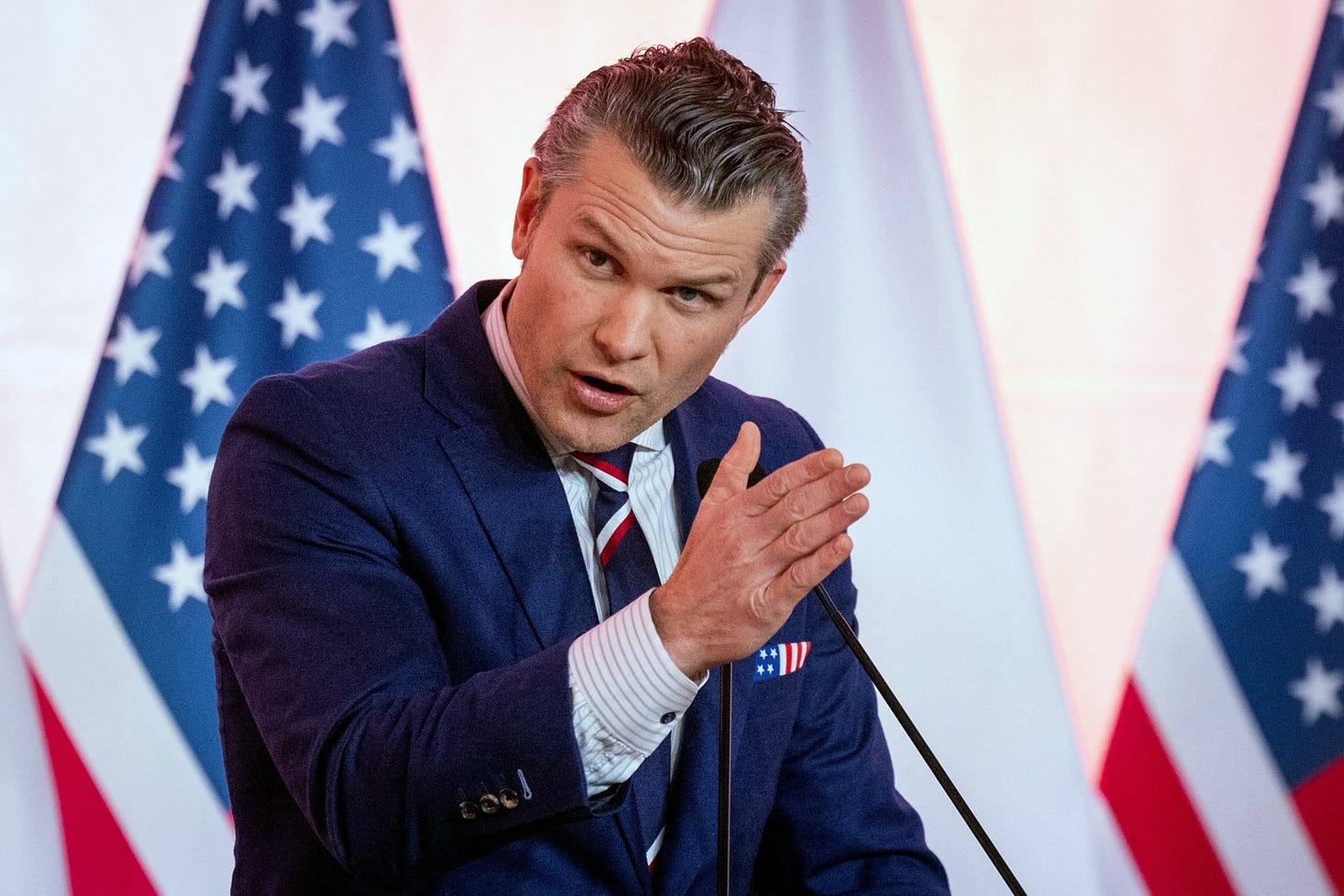Machiavelli’s Military
How Political Loyalty Purges Undermine National Security
A personal reflection on the unsettling trend of political purges within our military leadership, asking what happens when loyalty trumps expertise. We’ll dive into the historical warnings and the very real dangers this poses to our nation’s defense and democratic fabric.
A Troubling Shift in Command: My Thoughts on Recent Military Firings
Lately, I’ve been grappling with something deeply unsettling that’s happening in the highest echelons of our military. We’re seeing reports, like the one about Defense Secretary Pete Hegseth dismissing a three-star general, not for incompetence, but seemingly for challenging the notion of extrajudicial killings. This isn’t just bureaucratic reshuffling; it feels like a fundamental shift in how power operates, demanding a kind of loyalty that transcends professional ethics. It’s a situation that screams for our attention, because when the military becomes a political tool, everyone’s freedom is at stake.
The Myth of a Neutral Military: Why We Can’t Afford to Ignore History
Many of us grew up believing in an idealized version of our military: strong, professional, and entirely apolitical. But history, both ours and others’, tells a more complex story. The very idea of an apolitical military, fiercely loyal to the Constitution rather than a specific party or president, is a hard-won democratic achievement. It’s a firewall that prevents the military from being used as a personal instrument of power. When civilian leaders demand absolute personal loyalty from military commanders, history shows us the slippery slope we’re treading. It reminds me of the words of a wise observer:
The ultimate weakness of violence is that it is a descending spiral, begetting the very thing it seeks to destroy. Instead of freedom, it produces enslavement.
– Martin Luther King Jr.
In this context, demanding unquestioning loyalty that overrides moral and professional judgment can be a subtle form of violence against the institution itself.
Hegseth’s Hammer: When “Loyalty” Means “Blind Obedience”
What we’re witnessing with Hegseth’s actions feels less like a pursuit of strategic alignment and more like a demand for blind obedience. When a general is reportedly dismissed for raising ethical concerns about potentially illegal actions, it sends a chilling message down the chain of command: question at your peril. This isn’t the loyalty to country and Constitution that we expect; it’s loyalty to an individual’s agenda. This kind of pressure forces military leaders into an impossible bind, asking them to compromise their professional integrity and the very principles they swore to uphold. It highlights a universal human weakness: the tendency to conform, to seek comfort in agreement, even when our conscience screams otherwise.
But What About Executive Authority?: The Other Side of the Coin
Of course, there’s another perspective to consider, and it’s a valid one. The President is the Commander-in-Chief, and ultimately, the buck stops there when it comes to national security. Many argue that to effectively govern, a President needs a team, military and civilian alike, that is fully on board with their vision and willing to execute their policies. Dissent, from this viewpoint, can be seen as undermining authority or even impeding crucial operations. The idea is that an elected leader has a mandate, and the military’s role is to carry out that mandate efficiently and without internal political friction. It’s about ensuring a unified front, especially in times of crisis. I understand this argument, but I also see where it can be dangerously stretched.
The Dangerous Tightrope: Balancing Power and Principle
This brings us to the precarious tightrope walk between executive authority and institutional integrity. While a President certainly needs capable and loyal officers, that loyalty must be directed towards the Constitution and the rule of law, not towards personal fealty or partisan agendas. When ethical concerns from seasoned professionals are met with dismissal rather than deliberation, we lose invaluable expertise and create a climate of fear. This undermines the military’s ability to provide objective advice and, more importantly, its moral authority. The true strength of a military, and indeed a nation, lies not just in its firepower, but in its unwavering adherence to principle and its capacity for moral courage. As Hannah Arendt wisely observed:
The most radical revolutionary will become a conservative the day after the revolution.
– Hannah Arendt
This reminds us that power, once attained, can swiftly seek to consolidate itself, often at the expense of the very ideals it supposedly serves. We must ensure the revolution in command isn’t against our principles.
What This Means for Us: Protecting Our Institutions
So, what does this mean for us, the citizens? It means recognizing that the health of our military, and by extension our democracy, is not an abstract concept. It means understanding that when political leaders demand personal loyalty from our uniformed services, they are chipping away at a fundamental pillar of our republic. We need to be vigilant, to demand transparency, and to support the institutions that are designed to check executive power. This isn’t just about partisan politics; it’s about safeguarding the very mechanisms that protect our freedoms and ensure our national security isn’t compromised by short-sighted political agendas.
Go Deeper
Step beyond the surface. Unlock The Third Citizen’s full library of deep guides and frameworks — now with 10% off the annual plan for new members.
Standing Guard for Democracy: Concluding Thoughts
The message is clear: the politicization of the military is a dangerous game. When loyalty becomes a tool for personal power rather than a commitment to public service, the republic itself is imperiled. We must stand as vigilant citizens, educated and engaged, ensuring that our military remains a professional, apolitical force, devoted to the Constitution and the welfare of all Americans. This is not just a call for political debate; it is a call to protect the very soul of our nation from the insidious creep of authoritarian tendencies. Let us not let the lessons of history fade.



